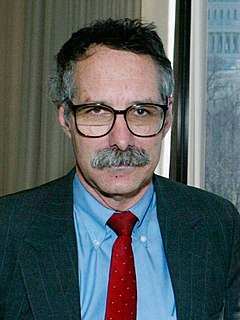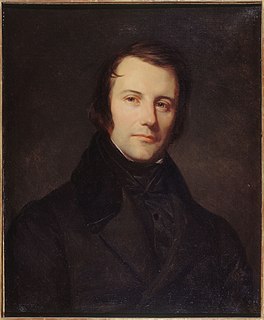A Quote by Oscar Wilde
The more one analyses people, the more all reasons for analysis disappear. Sooner or later one comes to that dreadful universal thing called human nature.
Related Quotes
Trees and flowers were often more meaningful to me than people. They always helped me, consoled me, giving the soul a chance to believe once more than the world was beautiful and sensible, that the mad absurdities and cruelties of men were against the laws of Nature and the Universal Mind; that sooner or later violence would suffer utter defeat on this Earth. No words collected in books were more effectively convincing to me than foliage, clouds, rippling waters, rain.
Sooner or later, the ones who told you that this isn't the way it's done, the ones who found time to sneer, they will find someone else to hassle. Sooner or later, they stop pointing out how much hubris you've got, how you're not entitled to make a new thing, how you will certainly come to regret your choices. Sooner or later, your work speaks for itself. Outlasting the critics feels like it will take a very long time, but you're more patient than they are.
One of the problems with industrialism is that it's based on the premise of more and more. It has to keep expanding to keep going. More and more television sets. More and more cars. More and more steel, and more and more pollution. We don't question whether we need any more or what we'll do with them. We just have to keep on making more and more if we are to keep going. Sooner or later it's going to collapse. ... Look what we have done already with the principle of more and more when it comes to nuclear weapons.
People prefer to be with people like themselves. For all the celebration of "diversity," it's sameness that dominates. Most people favor friendships with those who share similar backgrounds, interests and values. It makes for more shared experiences, easier conversations and more comfortable silences. Despite many exceptions, the urge is nearly universal. It's human nature.
It is one of my targets to show people that a lot of things that are part of their landscape - that people are universal - are the result of some very precise historical changes. All my analyses are against the idea of universal necessities in human existence. They show the arbitrariness of institutions and show which space of freedom we can still enjoy and how many changes can still be made.
In fact, the science of thermodynamics began with an analysis, by the great engineer Sadi Carnot, of the problem of how to build the best and most efficient engine, and this constitutes one of the few famous cases in which engineering has contributed to fundamental physical theory. Another example that comes to mind is the more recent analysis of information theory by Claude Shannon. These two analyses, incidentally, turn out to be closely related.
I believe the advantage music has is the capacity to multiply itself, the capacity to keep itself in space and access itself at different times and in different processes and to make profound analyses, analyses that through musicality would be able to connect with people who don't necessarily have the energy or wish in any exact moment to connect to well-read or critical analysis.
When you are in your twenties, even if you're confused and uncertain about your aims and purposes, you have a strong sense of what life itself is, and of what you in life are, and might become. Later.. later there is more uncertainty, more overlapping, more backtracking, more false memories. Back then, you can remember your short life in its entirety. Later, the memory becomes a thing of shreds and patches.







































